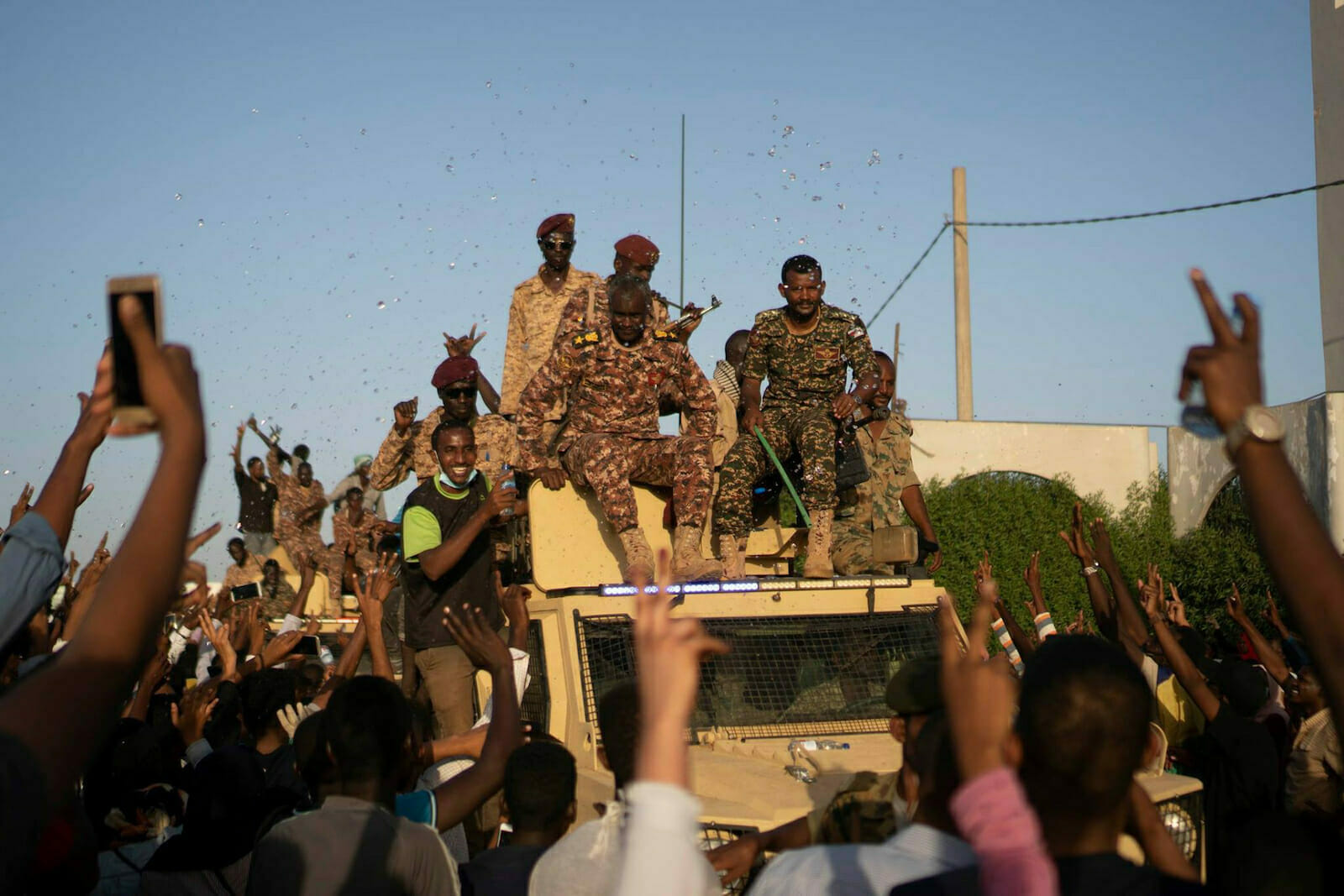
Human Rights Crisis in Sudan
Sudan has been ruled by a transitional government for the past three years in which military and civilian leaders have shared power until national elections can be held. The country is categorised by Freedom House as “not free” and human rights violations taking place are simply not on the radar of the international community.
During the political battles that have taken place over the past 3 years, dozens of political prisoners and their families have been jailed. Political detainees have been mistreated and persecuted in contravention of international ethical and legal standards.
After the overthrow of the regime of Omar al-Bashir in April 2019, many former government employees were dismissed without warning and were not informed of the reasons for their expulsion. The dismissals were arbitrary and based only on allegations of relations and contacts between those dismissed and the former regime. But the Ministry of Labour and other state bodies were kept and preserved without changes after the events of 2019 and were not involved in the mass firings.
These arbitrary dismissals of such a large number of citizens are a serious violation of human rights, but the international community has paid little attention to these events.
Before the overthrow of Bashir in 2019, the international community recorded human rights violations and the mistreatment of political prisoners in Sudan. But since the end of Bashir’s rule, global interest in these problems has faded.
If we look at some specific examples, the case of Abdullah Hassan al-Bashir, the former president’s brother, is illustrative.
Abdullah was arrested in November 2019 and imprisoned without trial for 14 months until June 2020. He was then accused of embezzling state funds, together with Dr. Al-Sadiq Qassem Allah, who was released on bail of £11 million pounds. Abdullah was not allowed bail.
On April 22, 2020, he was diagnosed with stage 3 cancer, and after about twenty days he appealed for release but was denied the possibility of treatment abroad, despite the fact that he could likely die without treatment abroad. On November 13, 2020, he tested positive for COVID-19 and was transferred to an isolation ward in a hospital, where he died within a month.
Abdullah’s right to a fair trial within a reasonable time, the right to personal liberty, the right to medical care, and humane conditions of detention were all violated.
The following persons died in similar circumstances.
Sharif Ahmed Omar Badr held several positions in the former regime including the governor of Gezira and Gedaref, the Minister of Investment, and the Chairman of the Board of Directors of Sudan Airways. He was arrested at the beginning of November 2019 and died on May 14, 2020. He had contracted COVID while in prison. He was prevented from receiving proper treatment. When his condition deteriorated, he was transferred to a hospital but died soon afterward.
Al-Zubair Ahmed Al-Hassan also held several governmental and non-governmental positions including the Secretary-General of the Islamic Movement in Sudan, several Ministerial positions including Energy and Mining, and Finance, Deputy Governor of the Central Bank, Chairman of the Board of Directors of the National Bank of Sudan in Omdurman, and Chairman of the Parliament’s Economic Committee. He also contracted COVID and did not receive any treatment from prison authorities until his health deteriorated significantly, although everyone knew that he had heart disease and diabetes. He was arrested on November 1, 2019, and died on May 14, 2020, at the age of 66.
Abu Huraira Hussein was previously the Minister of Youth and Sports, and the head of the Children and Youth Welfare Committee. He died as a result of multiple health issues, the most serious being kidney failure. He also received no form of medical treatment from the authorities after his arrest on April 11, 2019. He died on October 12, 2021, at the age of 48.
Widad Babiker, Omar al-Bashir’s wife, was brought to trial due to her status as Bashir’s wife. Widad was arrested on December 12, 2019, and spent a long period in detention without any charges being brought against her.
During Widad’s stay in prison, her chronic diseases worsened and according to doctors, these diseases appeared as a result of improper care and poor personal hygiene in prison. Even though there were no accusations brought against her in 10 months, her family members and lawyers were not allowed to see her. Due to her deteriorating health, she was placed under house arrest and no charges have been brought against her.
The above examples share a common strand, namely negligence on the part of authorities and unreasonably long legal procedures.
Since coming to power, the new Sudanese government has introduced some reforms but nothing to improve the existing legal base with regard to compliance with international human rights.
More recently, the government has adopted a law to amend the Criminal Code and abolish the statute of limitations on a number of crimes. The adoption of the amendments does not contradict the rules of international law, but the Sudanese judicial authorities have applied them with retroactive effect, meaning that suspects whose trial period had expired in accordance with the law, were nevertheless prosecuted. Such actions directly contradict the international obligations that Sudan has taken upon itself when it joined the International Covenant on Civil and Political Rights.
Justice in Sudan faces three main problems. Firstly, the legal and political system in Sudan continues to allow the violation of the rights of political prisoners. Secondly, the indifference of the international community to what is happening in Sudan and the lack of engagement to monitor reforms and prevent violations. Finally, the Sudanese courts are adopting double standards in the administration of justice rather than a clear, unified set of rules and procedures.
To this day, hundreds of doctors, soldiers, and politicians detained for political reasons are still being held in prisons. However, due to a lack of international scrutiny, their fate still remains unclear.
